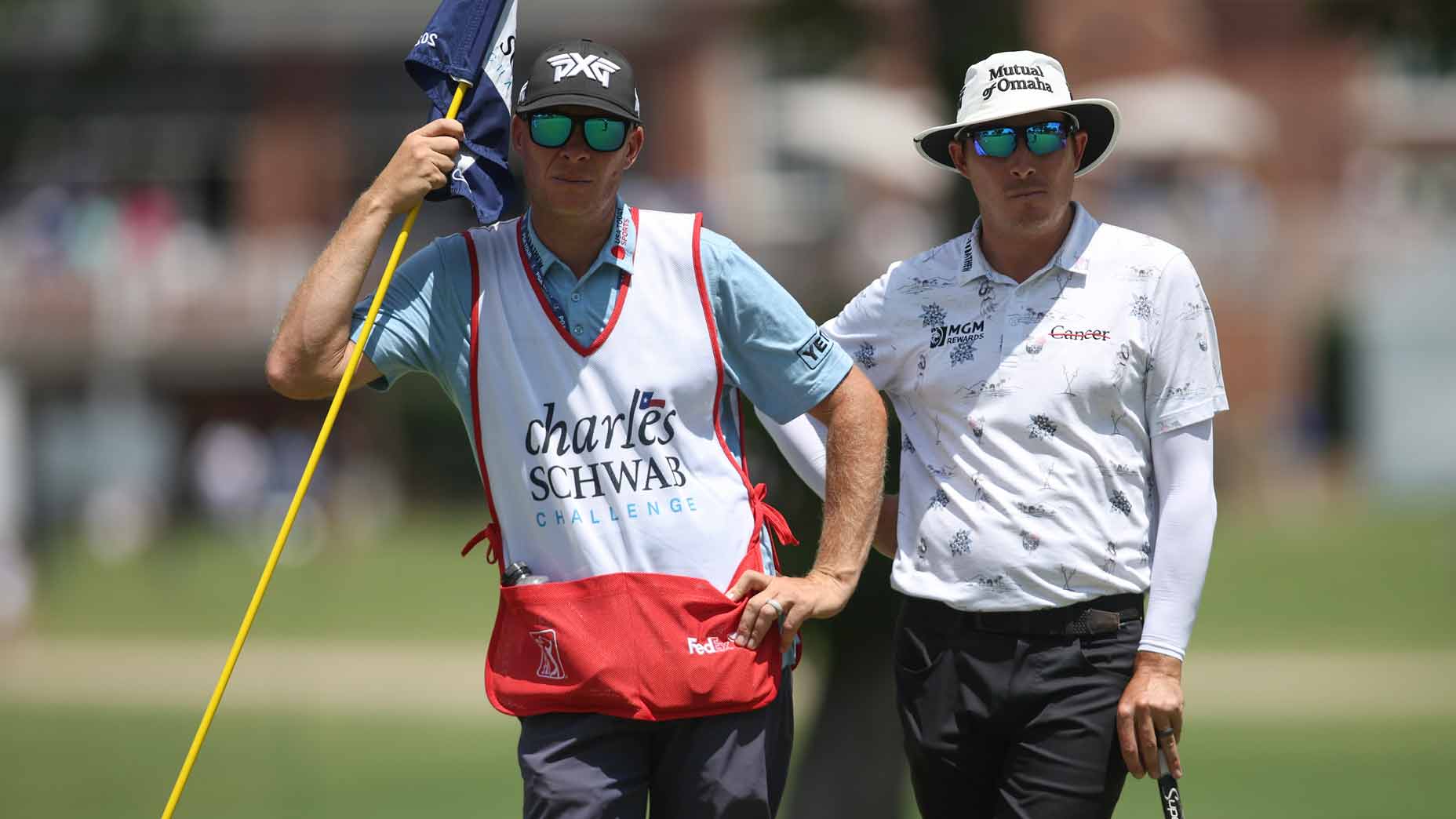 2 golfers selected as flag-bearers for Olympics Opening Ceremony
2 golfers selected as flag-bearers for Olympics Opening Ceremony
‘We are all destroyed’: Chilling details of Iowa State golfer’s murder leaves college community stunned and family, friends reeling
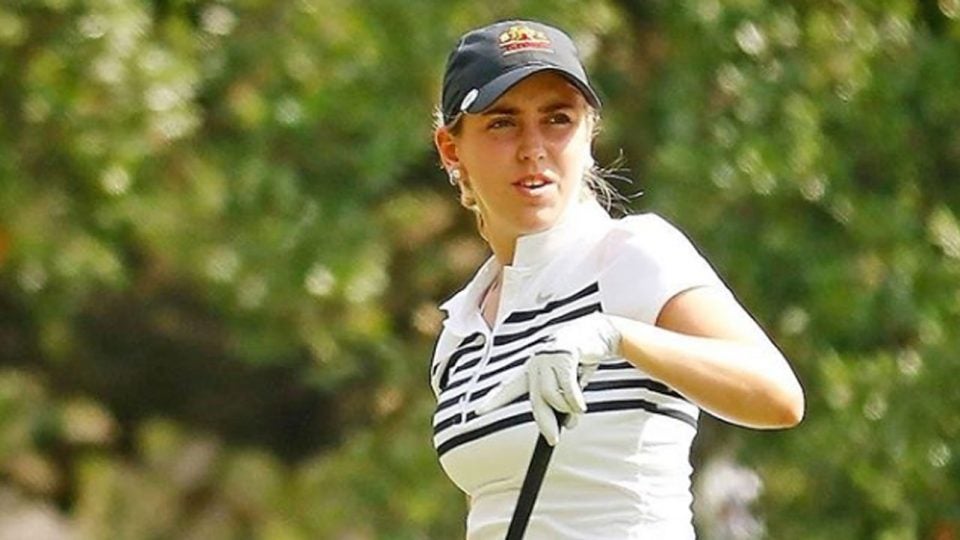
Monday, Sept. 17, dawned cloudy and hot in Ames, Iowa. Celia Barquin Arozamena, a top amateur golfer and former member of the women’s team at Iowa St., headed off for a casual morning round at Coldwater Golf Links. She texted her former coach, Christie Martens, who was with the team at a match-play event hosted by the University of Michigan. Martens recalled the text later, speaking to reporters. “Love seeing my Cyclonitas on top,” she read. “Keep it up, girls!”
Barquin teed off the front nine at Coldwater, a mostly treeless course tucked into a wooded Ames neighborhood. She had used up her collegiate eligibility the previous spring, but her career was just beginning: She had aspirations to join the LPGA tour and had recently made it through the first stage of Q-School.
Around 8:45 a.m., Barquin caught up to a foursome of men, Harley Thornton among them.
“This very nice young lady came up with her push cart and we all agreed that she should go in front of us,” Thornton told KCCI later. “We knew she would be a lot faster than a bunch of old men.”
Barquin played through the group and quickly moved beyond their sight.
About an hour later, Thornton’s group arrived on the 9th tee. Immediately, he knew something was amiss. Barquin’s bag was there, as were several tees, strewn across the ground beside her hat.
“This was very strange and not right,” he said later. “There is no reason to abandon your clubs in the middle of the fairway.”
More worrisome still: Barquin’s cell phone was there, too.
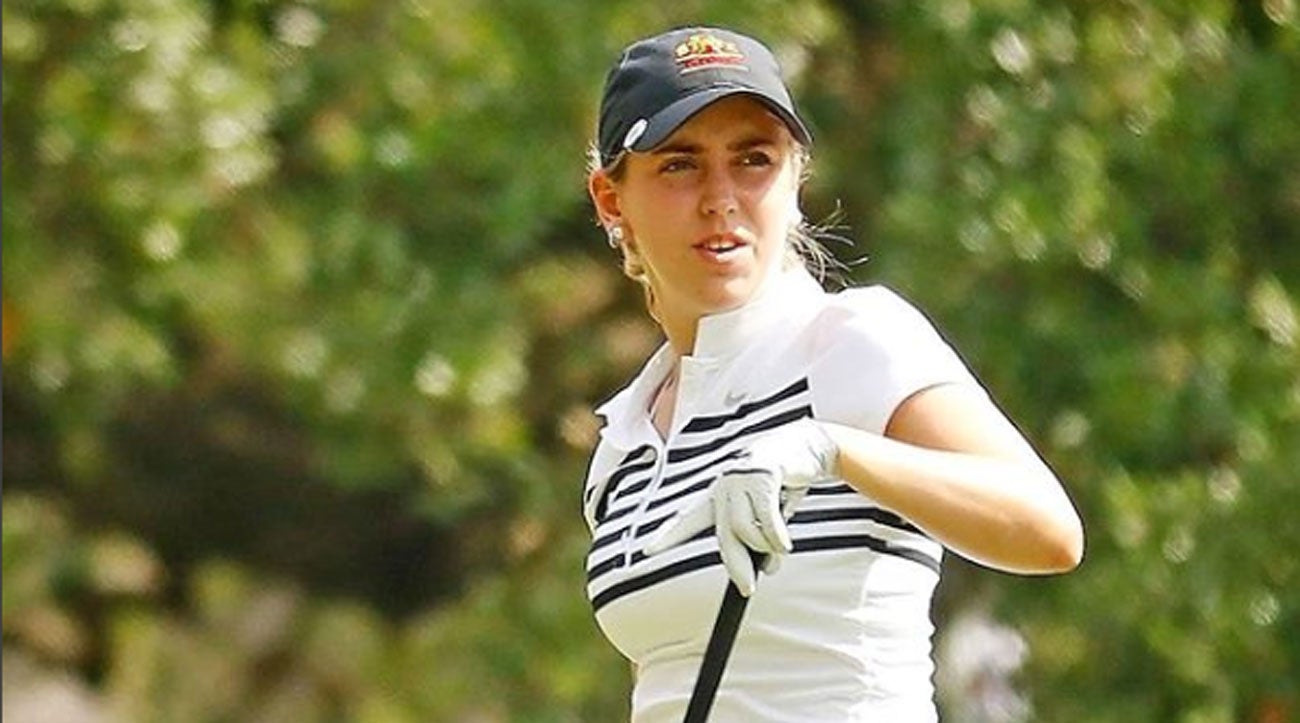
A STAR IN THE MAKING
Golf had been an important part of Barquin’s life from an early age. Growing up in Spain, her sports heroes were Seve Ballesteros and Sergio Garcia. Even in college, her coach said she nearly wept when Garcia missed the cut at the 2018 Masters.
Barquin turned into one of the top junior players in the country, cementing that status by winning the U-14 Spanish Championship. She had scholarship opportunities all over the U.S. and was understandably tempted by Southern schools, which had climate in their favor. But then she and her mother, MaA’ngeles Arozamena, met Coach Martens. They were hooked.
“Her mom and I hit it off right away,” Martens said in an interview published by the Des Moines Register. Forget the traditional powerhouses — Barquin would become a Cyclone.
“That’s a lot of trust they put into Iowa State and into me,” Martens said.
The choice proved to be mutually beneficial. The Cyclones — or “Cyclonitas,” as Barquin dubbed them — gained a superstar. Barquin found a home away from home. She grew close to Marten, who she said was “like my second mom, always taking care of me.” She would write quotes on the board in the team room to entertain and inspire. On Valentine’s Day, she brought flowers to the team to make sure they all felt loved.
On the course, her play was unmatched, driven at times by pure determination. “I think it was the Spanish influence in her but she always wanted to win you,” Marten said. “Other players would hit it 40 yards by her, but she always thought she was gonna outdrive them.”
Barquin became arguably the greatest player in the history of the program. She earned all-Big 12 honors three times. She won the Big 12 Championship in April (a life highlight was when Garcia retweeted this accomplishment), and Iowa State went so far as to name her the school’s female athlete of the year. She remains Iowa State’s career leader in stroke average.
https://www.instagram.com/p/BlyGeLUgq68/?hl=en&taken-by=celiabarquin96
The on-course accolades continued into the summer. Barquin fired a final-round 66 in her sectional qualifier to earn a spot in the U.S. Women’s Open at Shoal Creek. She won the European Amateur Championship in July at Slovakia’s Penati Golf Resort. Most recently, she had advanced to the second round of the LPGA tour’s qualifying school.
“Cel had so much pride competing for Iowa State,” Martens said. “Iowa State was a special place to her.”
THE DISCOVERY
The 9th hole at Coldwater is a sharp dogleg left that runs back toward the clubhouse. A large L-shaped pond runs up the right side of the hole. The tee boxes sit at the edge of a swath of trees that run all the way to the course’s north boundary, marked by Squaw Creek.
Thornton and his playing partners came off the the 8th green and made the short walk through the woods to the 9th tee. That’s when they came upon Barquin’s belongings.
It was just after 10 a.m. Thornton called the pro shop. Then he called 911.
“Timing is very important on something like this,” he told KCCI. “So we were just trying to help.” The Ames Police Department received the call at 10:24.

As course officials came out to investigate, they spotted something in the pond, a police department spokesman said on Tuesday. At 11:03, they identified it as a body. When Ames P.D. arrived on the scene a short while later, they confirmed their worst suspicions: that body was Barquin.
Thornton was stunned. He hadn’t heard any signs of a struggle; no screams or suspicious noises. And there would have been plenty of potential for onlookers. “Nine-thirty, 10 o’clock in the morning and with full view of anyone that wanted to look…that is a very brazen act,” he said.
He held back tears during his interview with KCCI, saying, “It could have been my daughter.”
Investigating officers determined that Barquin had sustained stab wounds to the upper torso, head, and neck.
THE PURSUIT
Officers immediately fanned out around the perimeter, looking for clues. At 1:35, they came upon a person of interest. D.B., as he was identified in the criminal complaint, was leaving the course on a walking trail; when officers caught up with him, he asked a question that gave the officers pause: “What did he do to her?”
D.B. revealed that he had been living in the same nearby encampment as a man who would become the alleged perpetrator. As D.B. led officers to the encampment, he revealed a chilling quote. While the two had walked together just days earlier, the perpetrator had talked about “an urge to rape and kill a woman.”
D.B. led officers to the encampment, which abutted the course to the north, just across Squaw Creek. It was hot now, pushing 90 degrees. A K9 dog tracked Barquin’s scent to one of the tents in the camp. As the officers were investigating the tents, a man approached.
As Collin Daniel Richards drew closer to the officers, they could see that his face was freshly scratched, according to their filing. He tried to hide a “deep laceration” on his left hand from the officers. Richards spilled some details to the police: he had visited another friend named C.J. earlier that day.
When officers tracked down C.J. at his nearby residence, he told the officers that Richards had showed up “disheveled and covered in blood, sand, and water.” Richards had bathed and then left, he said, putting his clothes in his black backpack on his way out.
Two more of Richards’s acquaintances, identified as R.B. and B.V., picked him up in their car and were in the process of driving him out of town to Jefferson, Iowa. But then Richards requested they return to the camp area so he could claim his tent. That was where he came across the police, who subsequently found two pairs of blood-stained shorts in a black backpack he had put down.
R.B. and B.V. also informed police that Richards had given them a knife, which they then turned over. He was immediately taken into custody.
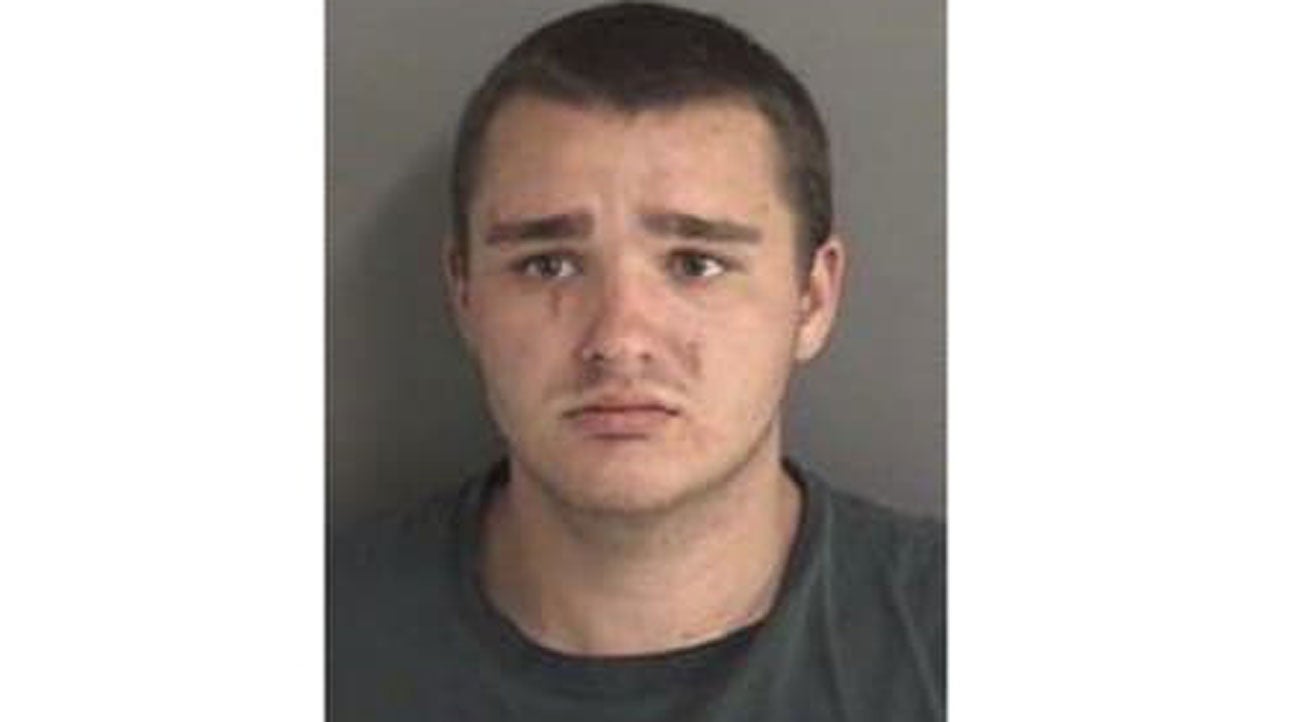
THE SUSPECT
Collin Daniel Richards is just 22 years old but has been a steady presence on police blotters since he came of age. In January, 2015, he was charged with careless driving. Later that month he allegedly tried to steal two energy drinks and then, upon being confronted by store clerks, told the workers that he would come back and “shoot the place up.”
The incidents continued: Auto theft in February. Drug paraphernalia and “failure to maintain control” in March. Criminal mischief in April. Drug paraphernalia again in May. Then another cause for major concern: Richards was sentenced to 60 days in jail after pleading guilty to a charge of domestic abuse assault causing bodily injury. All that in less than a year.
In 2016, he and two friends broke into a convenience store and filled duffel bags with cigarettes, chewing tobacco and beer. In 2017 he was arrested for burglary that involved a baseball bat and also for trespassing on his grandparents’ house, where he was no longer welcome. His grandmother, Diane Richards, told the Daily Times Herald that she was “devastated” at the news on Tuesday.
The Des Moines Register compiled a list that included Richards’ recent legal trouble; Richards has had multiple incidents involving alcohol and prescription drugs and has admitted to using methamphetamines.
Richards reportedly lived with his grandparents following his release from prison in June of 2017 but has not had a permanent address of late. Police said the temporary residence where Richards and D.B. were staying consists of two tents near the dead end in the 600 block of South Maple Avenue, near the north bank of Squaw Creek, in the same woods that connect to the golf course.
Richards is believed to have spent his childhood in Coon Rapids, Iowa. He attended high school at the Clarinda Academy, a residential foster-care facility for delinquent children, according to the Daily Times. Apart from his long list of legal troubles, he has stayed largely off the grid. A Facebook page in his name has 28 “friends,” although a page by another name appears to have photos of Richards, as if it was also his account.
The header photo displayed at the top of Richards’ page is chilling. It’s the top two frames of a meme. “Coffee, you’re my only friend,” one panel says. The image next to that is of a mug of black coffee. “Let’s go commit a murder,” it says.
Richards was incarcerated Tuesday, charged with first-degree murder, and held at $5 million cash-only bond. He is considered a flight risk.
THE AFTERMATH
Word of the alleged murder spread quickly across Ames. Police Commander Geoff Huff held a news conference at City Hall announcing an investigation of a “suspicious” death, though he chose to leave out the nature of the attack, where the body was found and, most importantly, the identity of the victim.
“The public should be very wary right now,” Huff he said to reporters. “Right now, all leads are important.”
In Ann Arbor, Mich., Barquin’s former teammates had just wrapped up a thrilling match-play victory in the East & West Match Play. They’d triumphed 3-2 over Oregon State to advance to Tuesday’s final against U.C. Davis. News of an incident at the Ames course had reached them, too.
Martens knew that there were police reports of a suspicious death at Coldwater, which worried her. “We couldn’t get a hold of Cel and there were a lot of questions.”
When their worst fears had been confirmed, there was no question that the team needed to head home and be together. Iowa State sent a plane to pick up the team. “It must be wrong. It must be a mistake. That was the pervasive mood,” Martens said.
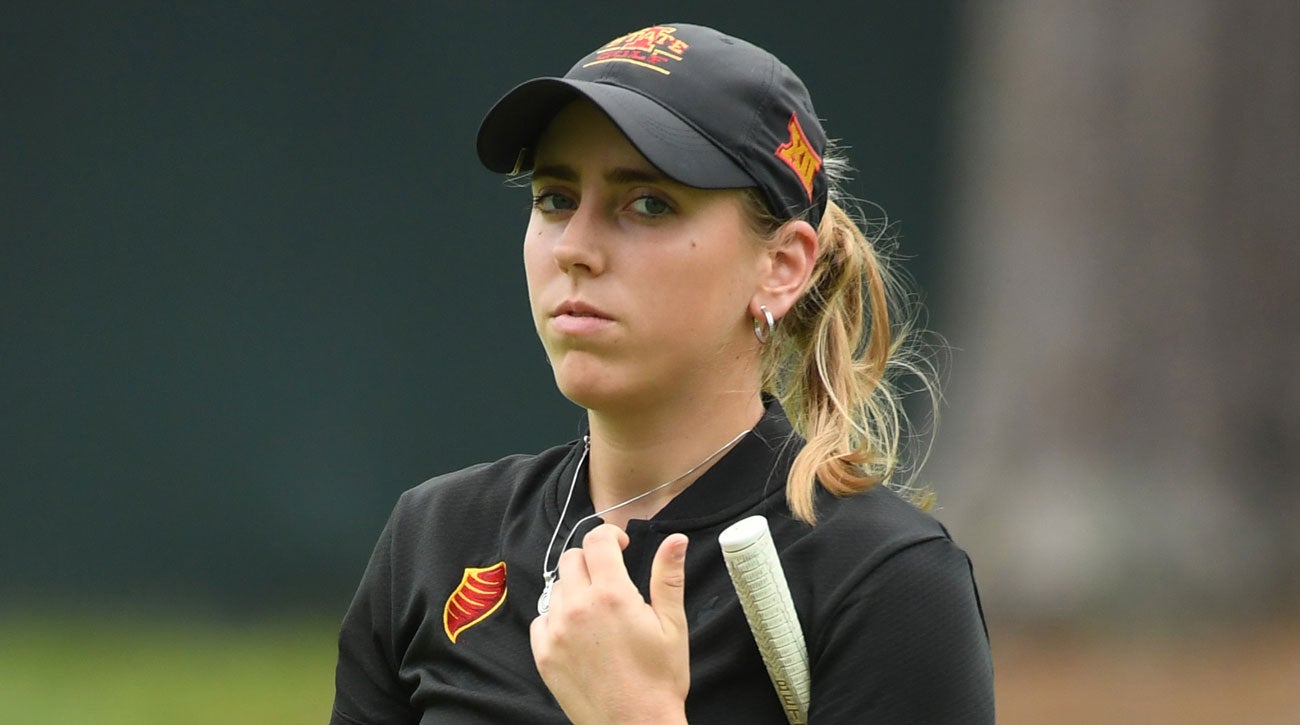
Martens was charged with calling Barquin’s parents in Spain and telling them the horrific news.
“Cel was happy every day that she was there,” her mother told Martens. “If we had this to decide all over again, we would still send her to Iowa State.” Martens choked up recalling the conversation. “That really meant a lot.”
On the trip back to Iowa, the team shared memories. They pulled up videos on their phones: Barquin trying cooking tricks, playing golf, being herself. When they returned home, they got together with the men’s golf team. That helped a little bit.
By Monday night reports began appearing on the web. By Tuesday morning it was a national story.
Just weeks earlier, Mollie Tibbetts, a student at the University of Iowa, had been killed while jogging near her home. Her alleged killer was facing arraignment Wednesday. Tibbetts’ death had been quickly politicized, much to the dismay of her family, because her alleged killer was an undocumented immigrant. Public officials all the way up to President Trump used the incident as a talking point in revising immigration law. The demographic differences in Barquin’s death meant it was likely to escape the political swirl, but it sent shockwaves across the golf world.
THE TRIBUTES
In Barquin’s hometown, the Cantabrian village of Puente San Miguel, everything came to a halt. The town has just 3,000 residents, so everyone knew — and took pride in — Barquin Arozamena and her accomplishments. Hundreds gathered at City Hall for a moment of silence; the flags came down to half-mast. Mayor Pablo Diestro had taught Barquin math when she was younger and the two had remained close over the years. He spoke of her pursuit of excellence, how she always went for 10 out of 10, and did so with a smile. “It’s a tragedy,” he told El Pais. “We do not believe it.”
Reporters in Puente San Miguel made their way to Barquin’s home, where the family was still seeking details from authorities about what exactly had happened. “Estamos todos muy afectados, destrozados,” her brother Andres told El Pais.
“We are all very affected, destroyed.”
Tributes poured in from across the golf world. “My heart breaks for the Iowa State University community, Celia’s family and friends, and truly all of Iowa. Tragic,” wrote Zach Johnson, who grew up in nearby Cedar Rapids. Annika Sorenstam tweeted out a photo she had taken with Barquin.
I can’t get this out of my mind! It’s just horrendous. Our deepest condolences go to the family and many friends of Celia Barquin Arozamena. #RIPCelia ? ? @CycloneWGOLF pic.twitter.com/yBPPs0Ck6K
— Annika Sorenstam (@ANNIKA59) September 18, 2018
The Ladies European Tour lowered its flags to half-mast and released a series of touching interviews with her peers at the Mediterranean Open in Spain. They remembered her for her humor, her energy and her impressive golf game, which was only continuing to improve. “She was just practicing out there, and now she’s gone.”
Friends pay their respects to Celia Barquín Arozamena @MeditLadiesOpen ??
LET players will honour Celia with a minute’s silence during the speeches at this evenings function, during the Pro-Am prize giving presentations, at midday during the 1st round & wear black ribbons. pic.twitter.com/F3dNMWxlha
— Ladies European Tour (@LETgolf) September 18, 2018
Countless pros tweeted their condolences, from Jhonny Vegas to Brittany Lincicome. Barquin’s hero, Sergio Garcia sent a message out on Twitter in both English and Spanish.
Heartbroken over what happened to #CeliaBarquinArozamena I had the pleasure of meeting her and I know she was a special person. Sending my thoughts and prayers to her family and loved ones in this difficult time
— Sergio Garcia (@TheSergioGarcia) September 18, 2018
Back on campus, Barquin was scheduled to come onto the field at halftime of the Iowa State-Akron football game to be honored as female athlete of the year. Now, the football team plans to honor her life. In addition to a video tribute and a moment of silence, the team will wear a “CBA” decal on their helmets. There is also a movement afoot for attendees to wear yellow to the game, Barquin’s favorite color.
A DREAM CUT SHORT
One theme that came across in the reaction from Barquin’s peers was the sense that it could have been anyone. Every serious golfer knows the feeling of spending hours alone on the course. Few places are considered more peaceful; this was a jarring violation of the pact every golfer has with his or her course.
In 2011, Barquin conducted an interview with her other childhood hero, Seve Ballesteros. She earned an award for the interview, which was published by a Spanish magazine. In the piece, Ballesteros reminded her that “life is a continuous game.”
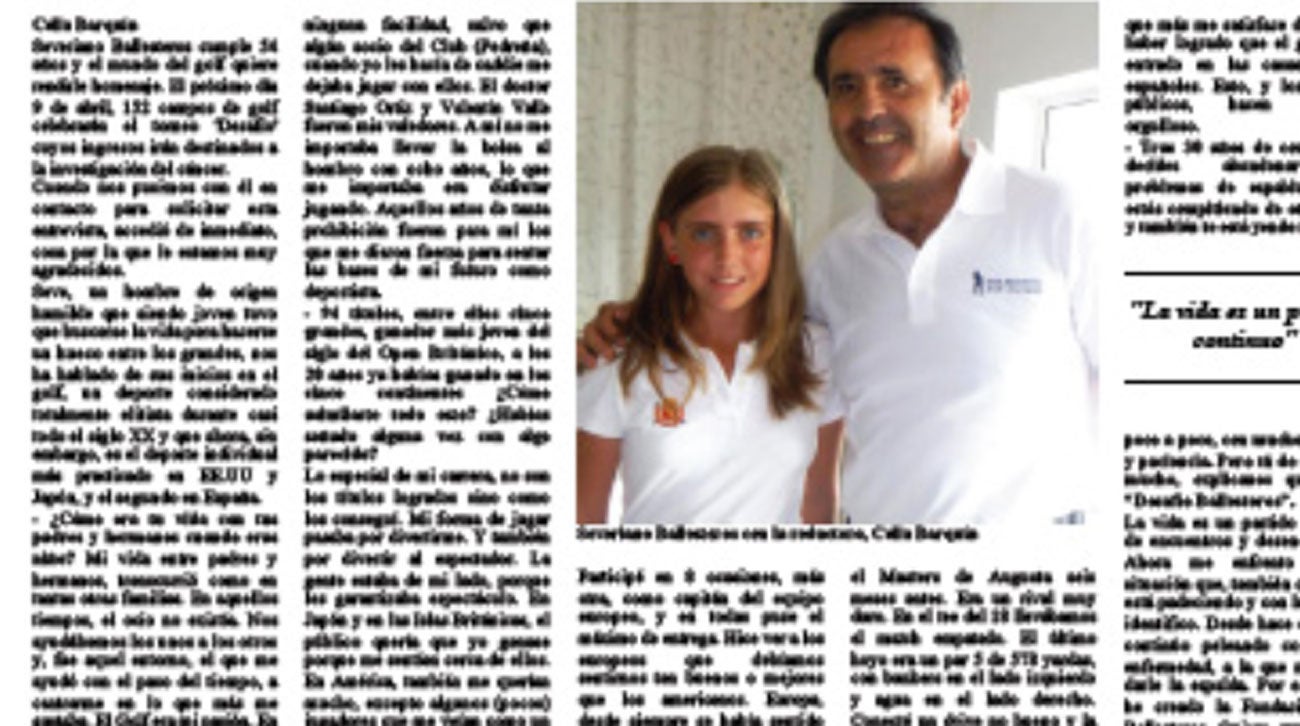
Just two years later, Barquin was a part of the same contest; only now she was the subject. Having moved to her country’s golf academy in Madrid to focus fully on her game, Barquin had become an inspiration to those from her hometown. A student from her former school interviewed her in English about leaving home and chasing her goals.
“Leaving all my family, friends and memories was very hard, but, I did it because I wanted to achieve my dream,” said a 16-year-old Barquin in the interview. “My dream is bigger than anything else.”
ADVERTISEMENT






